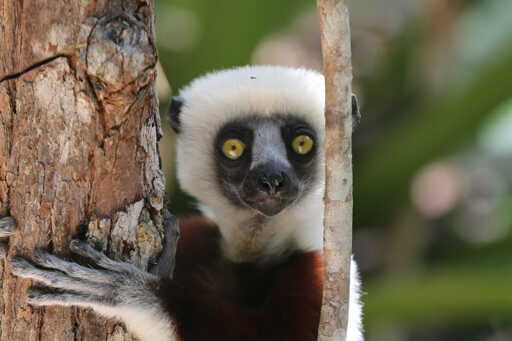ANTANANARIVO — Ninety-five percent of lemur species are threatened by habitat loss, hunting and climate change. The direct threat is often understood to result from the actions of poor rural communities, but a forthcoming study has found that thousands of threatened lemurs are being hunted and killed every year to feed a lucrative urban market for their meat in cities across Madagascar. “And 95% of that is through a hidden, direct-to-consumer trade, not restaurants,” study author Cortni Borgerson told Mongabay. “A single specialist trade-hunter can sell over 200 lemurs a year to their city clients.” Borgerson, an anthropologist at Montclair State University in the United States, has uncovered a highly organized luxury trade carried out by specialist hunters armed with shotguns. Lemur meat is by far the most expensive meat in Madagascar’s cities, a market fueled by wealthy urban consumers seeking both a connection to the wild and a self-care practice believed to preserve youth and health: “It’s seen as a natural, wild food that can counteract the health anxieties of an increasingly modern, urban diet and lifestyle, while also providing a luxury sense of rarity and quality,” Borgerson said. A black-and-white ruffed lemur (Varecia variegata), an endangered species of ruffed lemur. Traders hunting lemurs for the urban luxury market are after large-bodied species like brown and ruffed lemurs. Image by Rhett A. Butler/Mongabay. Damaging luxuries Rural subsistence hunting and the urban trade of lemur meat are largely separate but parallel systems, Borgerson said, though both exert pressure on lemur…This article was originally published on Mongabay
From Conservation news via this RSS feed


